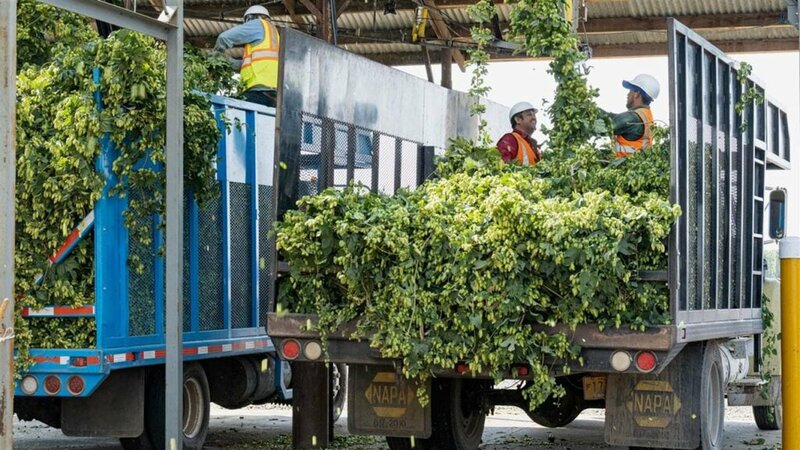Climate change may be very bad news for beer drinkers.
A new report in the journal Nature Communications shows that climate change is responsible for the decrease in quantity and quality of hops produced in Europe. And that trend is projected to continue as climate change is projected to continue.
That news could be problematic not just for Northwest hops farmers, but also bad for the beer drinkers.
Montana ranks third in national beer consumption per capita, at an average of 41 gallons per year. That’s behind North Dakota, which averages 45.8 gallons and New Hampshire, which averages 43.9. Oregon is 20th, with 30.3 gallons.
Increasing temperatures and longer, hotter drier summers have hit hops farmers in Europe particularly hard, where growers note not only a decreased quantity, but also a decrease in the alpha content of hops. Alpha content is a measurement that quantifies the bitterness of the hops, a desirable profile for many beer drinkers. Hops that have a high alpha content are often described as having a grapefruit or citrusy aroma.
The hop-growing zone that runs through central Europe also runs through most of the United States, including Oregon.



 Beer
Beer Climate Change
Climate Change Farming
Farming Agriculture
Agriculture



